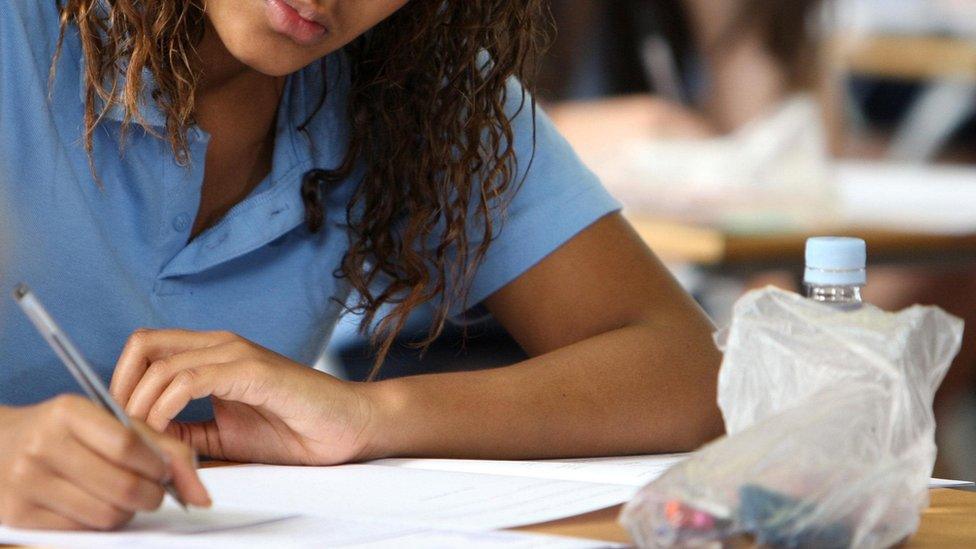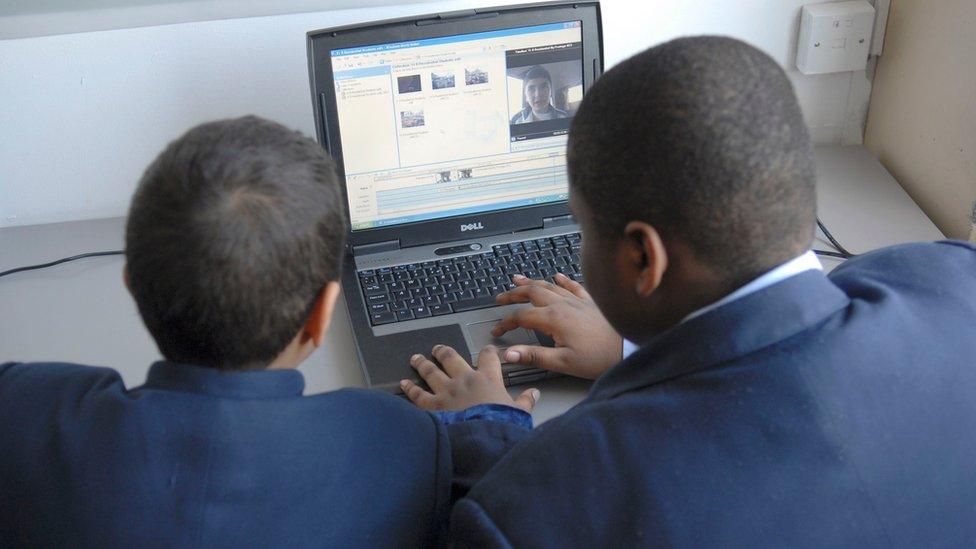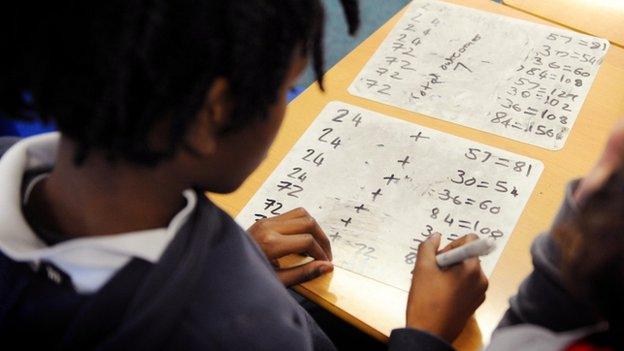Social mobility promise 'broken' for ethnic minority children
- Published

The report from the Social Mobility Commission uncovered "stark differences"
Black and Asian Muslim children are less likely to get professional jobs, despite doing better at school, according to an official report.
The Social Mobility Commission said it uncovered "stark differences" between how groups progress into work.
Some minorities have higher jobless rates, although poorer white boys are least likely to go to university.
Alan Milburn, chair of the Commission, said the British 'social mobility promise' was being broken.
"British families are told that if their children go to school and work hard, they will be rewarded with good jobs and opportunities. But for many groups this promise is being broken," says the commission's report.
"In recent months, the low educational attainment of White British boys has gained significant attention. However, when it comes to the transition from education to employment, this group is less likely to be unemployed and to face social immobility than their female counterparts, black students and young Asian Muslims."
The study was carried out by education think-tanks LKMco and Education Datalab, looking at how students progress through schooling, if they go on to sixth form and university, and how their achievements translate into jobs.
An uneven journey
White boys from poorer backgrounds perform badly throughout the education system and are the worst performers at primary and secondary school, the report said.
Black children, despite starting school with the same level of maths and literacy as other ethnic groups, are most likely to fail maths GCSE.
Black boys face extremely high levels of school exclusion and perform substantially worse than their female peers.

The report says black boys perform worse than girls at school
And the report said that young black people also have the lowest outcomes in science, maths and technology A-levels and are the least likely ethnic group to achieve a good degree at university.
It is disadvantaged young people from white British backgrounds who are the least likely to access Higher Education.
Only one in 10 of the poorest go to university, compared to three in 10 for black Caribbean children, five in 10 for Bangladeshis and nearly seven in 10 for Chinese students on the lowest incomes.
But after school, it is young women from Pakistani and Bangladeshi backgrounds that are particularly affected.
Despite succeeding throughout education and going to university, they are less likely to find top jobs and are paid less than women from other ethnic minorities, the report concluded.
'A long way from level playing field'
The Commission has called for action from government, educators and employers to narrow these gaps.
It has also published a list of recommendations, including avoiding setting in school and targeting specific groups to try and improve the system.
Mr Milburn said: "The British social mobility promise is that hard work will be rewarded. This research suggests that promise is being broken for too many people in our society.
"Britain is a long way from having a level playing field of opportunity for all, regardless of gender, ethnicity or background.
The report also showed the role of parents plays a large part in performance at school, as the more they engage, the better their children do, according to the research.

Recommendations from the Commission
Schools should seek to involve and work with parents, targeting those from the groups that are least likely to engage in their children's education, such as poor white British and Gypsy, Roma and Traveller groups.
Schools should avoid setting, particularly at primary level, and government should discourage schools from doing so.
Schools, universities and employers should provide targeted support to ensure Muslim women are able to achieve their career ambitions and progress in the workplace.
Universities should implement widening participation initiatives that are tailored to the issues faced by poor white British students and address worrying drop-out and low achievement rates amongst black students.

- Published12 January 2016

- Published30 June 2014

- Published4 April 2016
